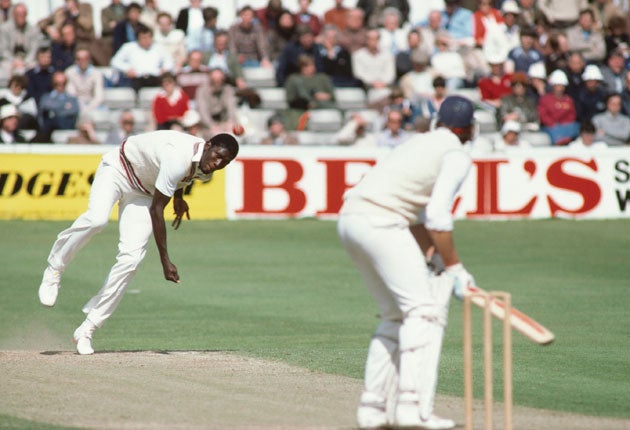Rajan's Wrong 'Un: 'Fire In Babylon' shines revealing light on rise and fall of West Indies
Cricket became, under Clive Lloyd's tutelage, an opportunity for black emancipation

There comes a point in the career of every cricketing contrarian when he realises his instinctive scepticism is futile. In my case, I find that time keeps coming. Years ago I had presumed, on being repeatedly told that C L R James' Beyond A Boundary was the finest sports book ever written, that it was the opposite; in fact, James' erudite tale probably warrants that label. Joseph O'Neill's Netherland was alleged to contain as elegant a description of a field of play as has yet been rendered in English prose, so I presumed that suggestion was bunkum; in fact, the novelist captured something poetic about the game that may not be surpassed.
And so on reading acres of newsprint lauding Fire In Babylon, and being told this was not only the "perfect gift for Father's Day" but that ever-ready thing, "the summer's feel-good movie", I was made an instant doubter. I should not have been. The promotional boast that this is "one of the greatest sports movies of all time" is deserved.
The film to which it has most been compared is Leon Gast's seminal When We Were Kings, because, like that Oscar-winner, it sees sport as a synonym for vast historical forces. Fire In Babylon may capture better than any other film the fact that, as James perceived, the history of cricket is none other than a sequence of imperial inversions, in which the English are defeated by those whom they once ruled. This process reached an apogee with the domination, for 15 years, of cricketers from the Caribbean.
In the mid to late 1960s, the West Indies – a bunch of separate nations who play no other sport together – were known for their calypso cricket. That may sound affectionate and upbeat, but in fact referred to their lackadaisical approach to professional matters. No shortage of headlines referred to the "batting collapsos of the calypso kings". And then Clive Lloyd showed up.
Lloyd completely changed the approach of the Caribbean to cricket. It became, under his tutelage, an opportunity for black emancipation, a glorious metaphor for the historic struggle of slave against master, and the final, inevitable triumph of the former. Sporting greats such as Viv Richards were seen as comrades of Martin Luther King and Malcolm X.
It helped that they had talented and terrifying players, many of whom – Joel Garner, Michael Holding, Richards, Andy Roberts, Colin Croft – are interviewed at length. The film brilliantly allows these history-makers to describe the narrative of which they are the heroes. Of course, seen from today's perspective, it is also dripping in nostalgia. This weekend India attained an unassailable 3-0 lead in their series against the West Indies. Rohit Sharma's undefeated 86 helped them chase down 226 from 92 for 6. The Sir Vivian Richards Stadium in Antigua was almost empty. The fire in Babylon was now a damp squib. How did we get here?
It is illuminating that, after watching the film, Chris Gayle reportedly told Richards he had no idea what his predecessors went through. Gayle, Dwayne Bravo and Kieron Pollard all play in the Indian Premier League; for them, money, not black emancipation, is a priority. Baseball and basketball have lured youngsters away from leather and willow, and Usain Bolt might yet convert a potentially great cricketer into a sprinter.
But never ignore the significance of plain good luck. If you fly over, say, Barbados, it is hard to believe this tiny island could produce, in the same era, cricketers as good as Garner, Marshall, Greenidge, Haynes, Daniel, Clarke, and so on. And yet it did. The sadness is not that the fire in Babylon burns no more; it is that it may be beyond the capacity of mere cricketers to reignite it.
Subscribe to Independent Premium to bookmark this article
Want to bookmark your favourite articles and stories to read or reference later? Start your Independent Premium subscription today.

Join our commenting forum
Join thought-provoking conversations, follow other Independent readers and see their replies